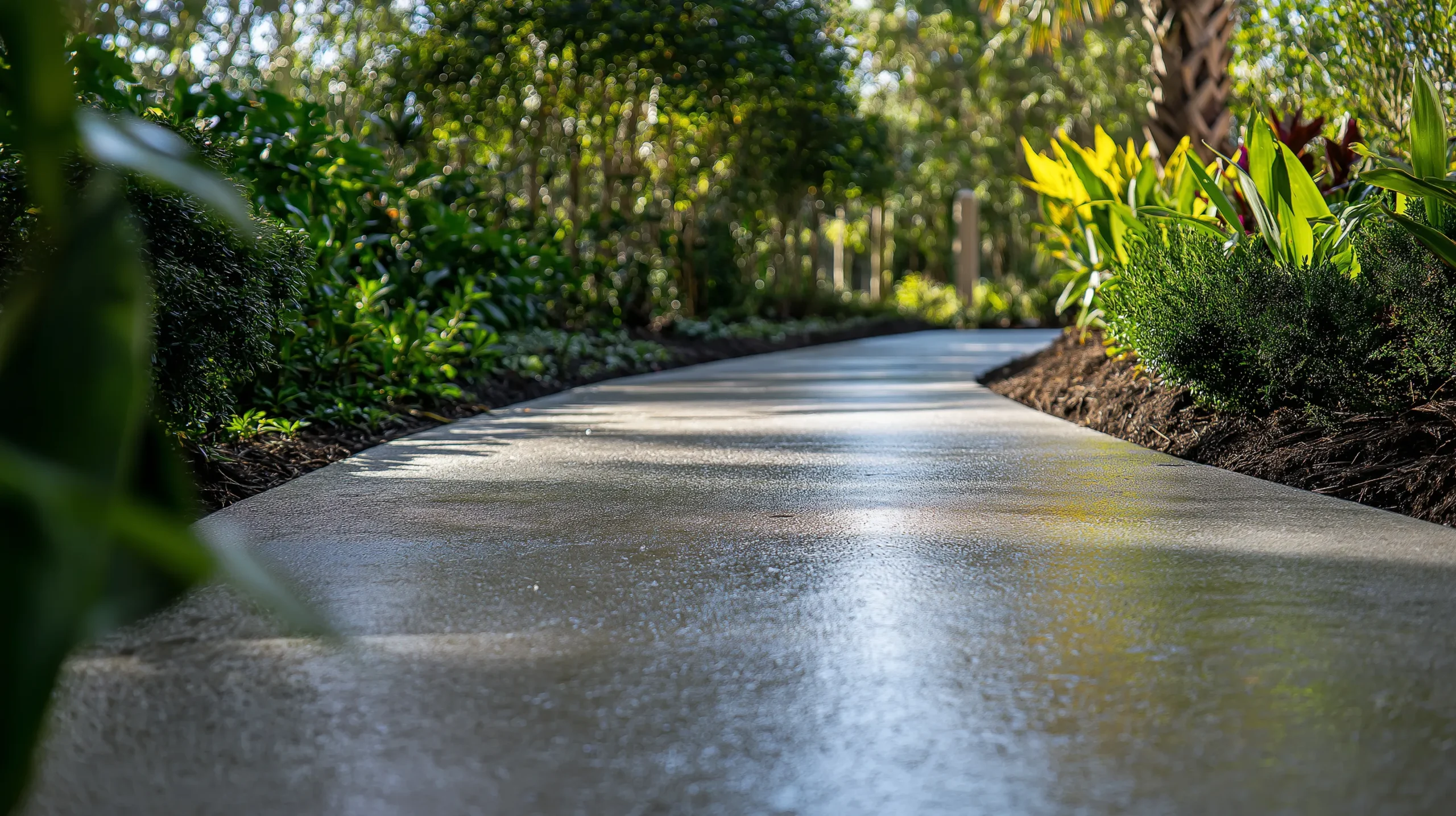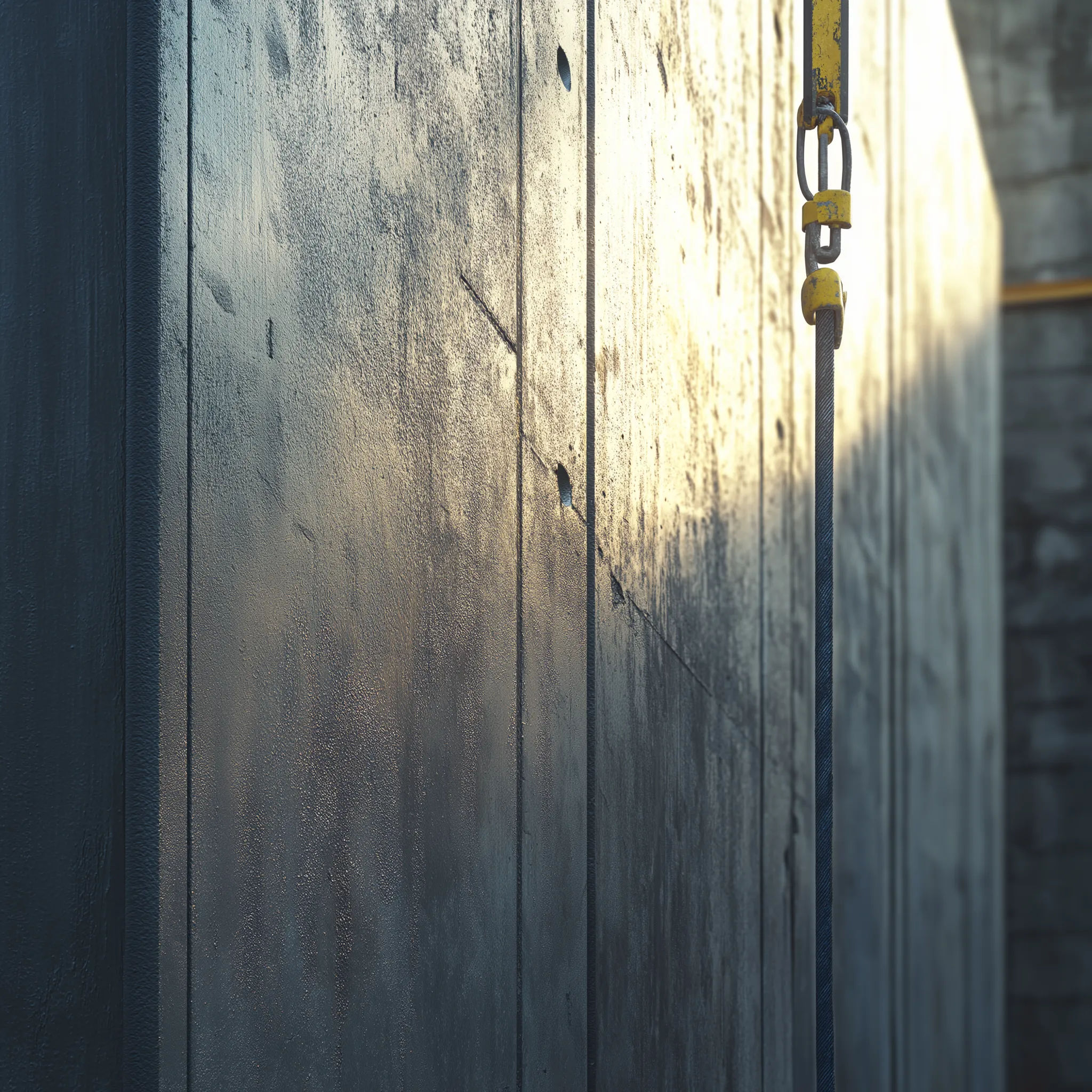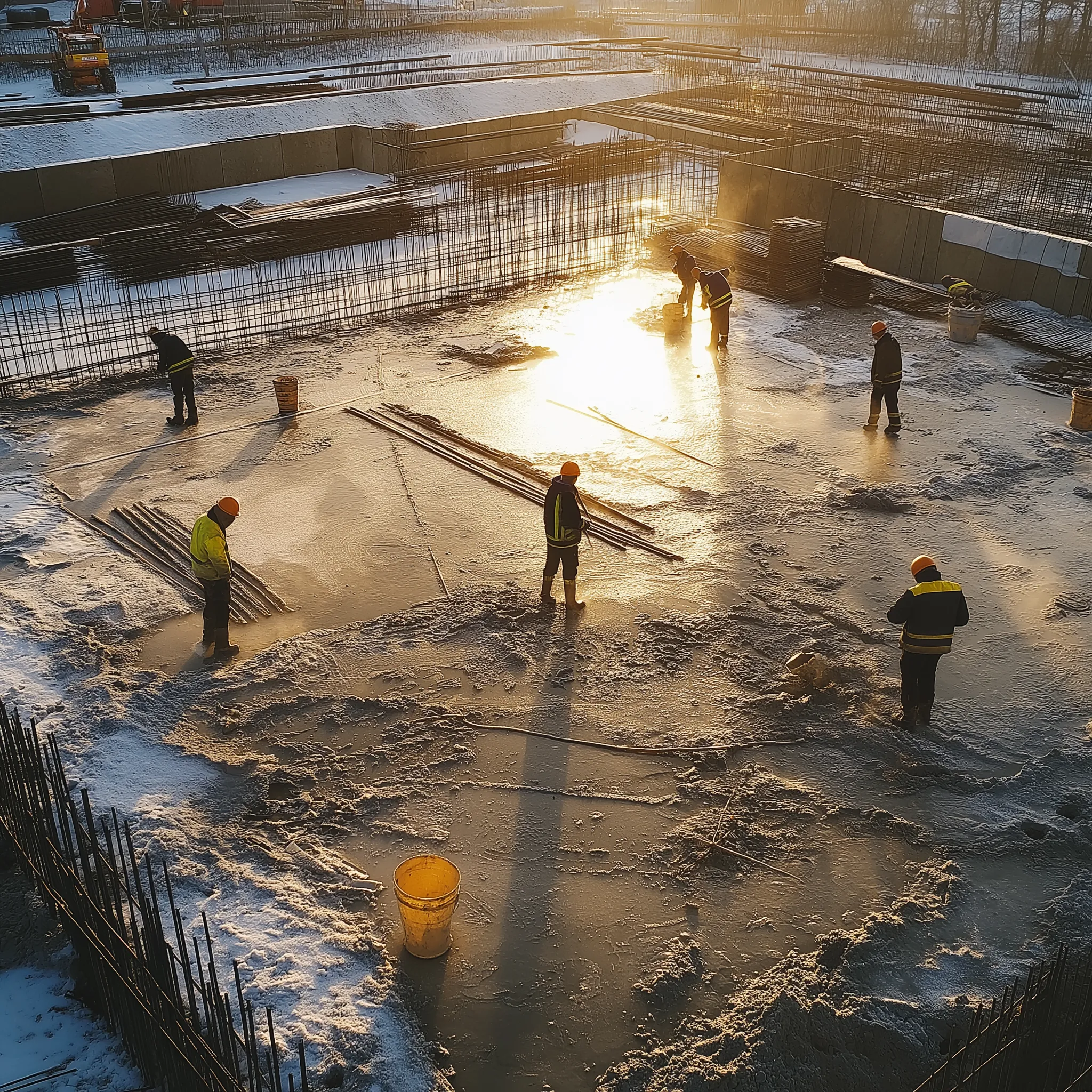The Problem: Scaling
Concrete scaling is a common issue faced in various construction projects, where the concrete surface peels or scales away. This not only affects the durability and strength of the concrete but also significantly impacts its aesthetics. Scaling primarily occurs due to freeze-thaw damage, poor finishing techniques, or improper curing. Understanding the causes and implementing effective solutions is crucial for maintaining resilient and visually appealing concrete surfaces.
Causes of Concrete Scaling
- Freeze-Thaw Damage:
- Description: Exposure to freeze-thaw cycles causes water within the concrete to freeze and expand, leading to surface scaling as the stress breaks the surface apart.
- Poor Finishing:
- Description: Improper finishing techniques, such as over-troweling or adding excess water to the surface, create weak surface layers prone to scaling when exposed to environmental stressors.
- Improper Curing:
Description: Inadequate curing practices result in insufficient hydration of the concrete, leading to weaker surfaces that are more susceptible to scaling. Proper curing ensures the concrete develops the needed strength and durability.
The Solution
Preventative Measures
To prevent concrete scaling, it’s vital to address the causes through proper mix design, finishing, and curing techniques:
- Quality Mix Design:
- Including air-entraining agents in the concrete mix enhances its resistance to freeze-thaw cycles. Ensuring adequate water-cement ratios and using high-quality aggregates also play a crucial role in preventing scaling.
- Effective Curing:
- Implementing appropriate curing methods maintains adequate moisture and temperature levels, which are essential for the proper hydration and strength development of the concrete surface.
- Proper Finishing Techniques:
- Avoid over-troweling or adding excess water during finishing. Adopting skilled and timely finishing practices helps in developing a durable surface layer, reducing the likelihood of scaling.
- Protective Sealers:
- Applying high-quality sealers can provide an additional layer of protection, preventing moisture ingress and minimizing the effects of freeze-thaw cycles and other environmental stressors.
Repair Methods
If scaling has already occurred, implementing repair strategies can restore the concrete surface and protect it from further damage:
- Surface Cleaning and Preparation:
- Thoroughly clean the scaled areas and remove any loose or damaged concrete. Surface preparation ensures better bonding of repair materials.
- Application of Repair Mortars:
- Use high-performance repair mortars designed to withstand harsh environmental conditions. These mortars can fill the scaled areas, providing a durable and aesthetic finish.
- Protective Coatings:
- After repairing, applying protective coatings can enhance the durability of the repaired surface and prevent future scaling.
The SpecChem Solution
SpecChem offers an array of advanced products designed to prevent and repair concrete scaling effectively:
SpecRez
- Description: SpecRez is a premium penetrative sealer that provides excellent protection against moisture penetration and freeze-thaw damage. It significantly reduces the likelihood of scaling by forming a protective barrier on the concrete surface.
Cure & Seal 25
- Description: Cure & Seal 25 is a high-performance protective coating that seals and fortifies concrete surfaces. It effectively prevents scaling by offering robust protection against environmental stressors.
Duo Patch
- Description: Duo Patch is a versatile and durable repair mortar ideal for treating scaled concrete surfaces. Its high bond strength and resistance to freeze-thaw cycles make it perfect for restoring and strengthening the concrete.
RepCon V/O
- Description: RepCon V/O is a high-strength repair mortar designed for vertical and overhead applications. It effectively addresses scaling issues by providing a strong and enduring repair that withstands environmental challenges.
FAQs on Concrete Scaling
1. What causes concrete scaling? Concrete scaling is caused by freeze-thaw damage, poor finishing techniques, or improper curing practices that lead to a weak surface layer.
2. How can I prevent concrete scaling? Preventing concrete scaling involves using a quality mix design, employing effective curing methods, adopting proper finishing techniques, and applying protective sealers.
3. Can scaled concrete be repaired? Yes, scaled concrete can be effectively repaired by cleaning and preparing the surface, applying high-performance repair mortars, and using protective coatings.
4. Why is curing important in preventing scaling? Proper curing maintains adequate moisture and temperature levels, ensuring thorough hydration and strength development, which are vital for a durable concrete surface.
5. How do freeze-thaw cycles cause scaling? Freeze-thaw cycles cause water within the concrete to freeze and expand, creating internal stress that leads to the surface peeling or scaling away.
6. Are there products specifically for preventing concrete scaling? Yes, products like SpecRez and Cure & Seal 25 are designed to prevent concrete scaling by sealing and protecting the surface from moisture and freeze-thaw damage.
7. How do repair mortars help in fixing scaled concrete? Repair mortars, such as Duo Patch and RepCon V/O, fill the scaled areas and provide a robust and durable finish that restores the concrete surface while preventing further scaling.
8. Can poor finishing techniques lead to scaling? Yes, improper finishing techniques, such as over-troweling or adding excess water, can create weak surface layers that are prone to scaling when exposed to environmental stressors.
Concrete scaling is a critical issue that can compromise both the durability and aesthetics of concrete surfaces. By understanding the underlying causes and implementing effective preventive and repair measures, you can maintain robust and visually appealing concrete structures. SpecChem’s comprehensive range of products, including SpecRez, Cure & Seal 25, Duo Patch, and RepCon V/O, provide reliable solutions to address and prevent concrete scaling, ensuring the long-term performance and beauty of your construction projects.





